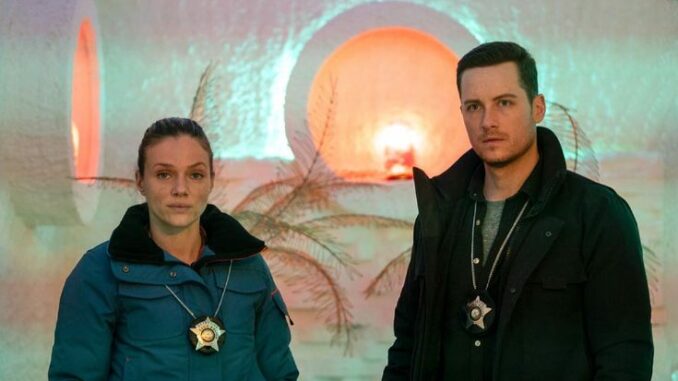
From the very beginning, Voight was never your typical network television cop. Introduced as a corrupt officer in Chicago Fire, he quickly evolved into the morally grey antihero leading Intelligence. He wasn’t afraid to bend rules, break laws, or dole out street justice if it meant getting results. While some viewers initially found his tactics unsettling, Jason Beghe’s layered performance slowly turned Voight into a fan favorite—and one of TV’s most compelling conflicted figures.
However, Voight’s ability to justify his actions has always hinged on the idea that he was doing what needed to be done. Each time he crossed the line, there was a cause: protecting his team, saving a child, stopping a killer. But the cost of those choices has been mounting. Season after season, Voight has watched friends die, protégés abandon him, and his unit grow weary of his leadership. His conscience, while often buried, has never disappeared entirely.
Now, with Reid’s shocking death—a young informant Voight had taken under his wing—the foundation of Voight’s moral code may finally be crumbling. Reid was more than just another name in Voight’s long list of informants. The troubled teen had echoes of Voight’s late son, Justin, whose death in Season 3 was a turning point in the sergeant’s descent into vengeance. Voight saw Reid as a second chance—a way to protect someone vulnerable from the life that swallowed Justin whole. That emotional investment makes Reid’s murder deeply personal, and potentially catalytic.

The Season 12 finale closed with Voight staring over Reid’s lifeless body, jaw clenched, eyes hollow—not just in grief, but in guilt. His failure to protect Reid is not a procedural loss; it’s a spiritual one. And with Reid gone, the show may be signaling that the walls around Voight’s long-suppressed remorse are finally cracking. What makes this moment even more significant is how carefully Chicago P.D. has been building toward it. Over the past two seasons, the show has subtly pulled Voight out of his comfort zone. His once loyal team members—Burgess, Ruzek, Atwater, and even Upton—have begun questioning his decisions. They still respect him, but the blind obedience that once defined Intelligence has eroded. Voight has become more isolated, his actions more unpredictable. In Season 12, we saw glimpses of vulnerability and hesitation that rarely existed in earlier seasons.
Second, there may be real consequences. With Upton gone and the team in flux, Voight could find himself without the loyal buffer he’s always relied on. The younger generation of officers may not tolerate his old-school tactics. If Reid’s death was the result of one of Voight’s shortcuts, he might face rebellion—or even betrayal—from within Intelligence. Third, there’s the potential for redemption—or destruction. Voight is the kind of character who could either retire in disgrace or go out in a blaze of justice. Reid’s death may push him to take a final stand—either by atoning for years of bloodshed or descending fully into the darkness he’s skirted for so long.
For fans of the show, this arc would be both heartbreaking and long overdue. Voight has been the emotional spine of Chicago P.D., but the narrative has, at times, protected him from truly dealing with the consequences of his choices. Now, with Season 13 confirmed, and One Chicago entering a new era with cast changes and shifting dynamics, the timing is perfect for Voight to face the music.
Jason Beghe has the gravitas to deliver this story with raw depth. His performance has always blended gravelly intensity with moments of heartbreaking vulnerability. In Season 13, we may see Voight more emotionally exposed than ever—questioning his worth, his past, and what legacy he leaves behind. Whether he ends the season in handcuffs, in retirement, or in the grave, the journey there could become one of the most powerful arcs in the franchise. Chicago P.D. has never shied away from tough questions about power, morality, and justice. Voight’s reckoning could bring those themes full circle. And while Reid’s death is a tragedy within the world of the show, it might also be the spark that ignites the final, most important chapter in Voight’s story.
